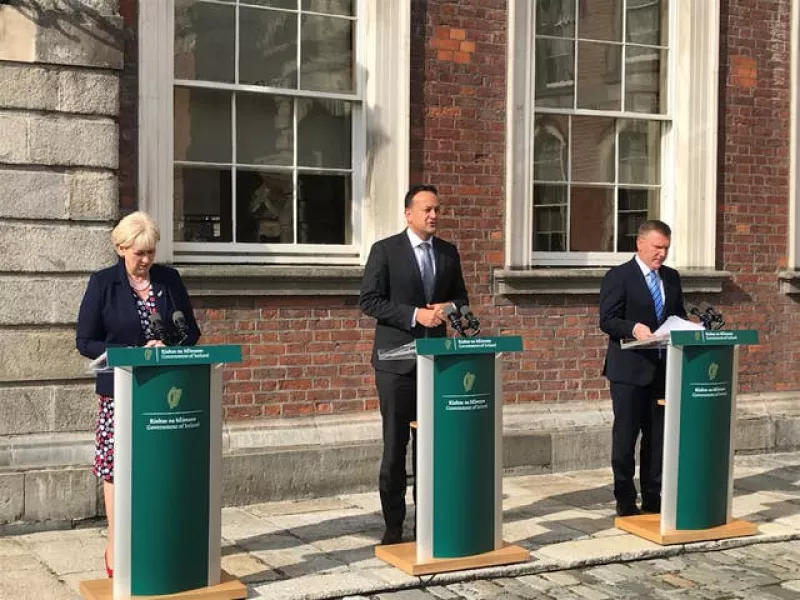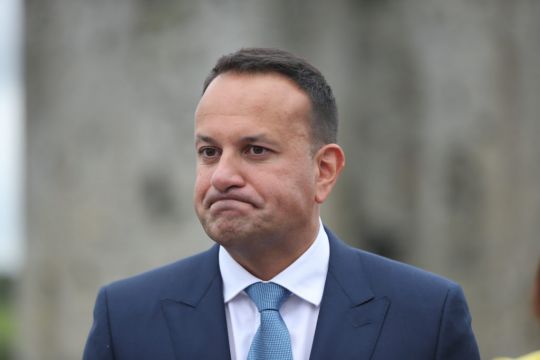Leo Varadkar has admitted his claim that any change to corporation tax “won’t impact the average Irish business” has not yet been agreed.
The Tánaiste said on Tuesday that should Ireland sign up to an Organisation for Economic Co-operation and Development (OECD) deal on a global minimum corporate tax rate, it would only apply to businesses earning over $750 million (€640 million) per year.
But speaking on Friday, Mr Varadkar admitted that while the proposal is on the table, it is not yet agreed and is still under negotiation.
He said: “I suppose what is on the table now, which is the OECD proposal, that would apply to companies with a turnover of over $750 million.
“That’s the current proposal on the table, that it would only apply to companies with that level of turnover. But that’s not agreed yet, that is still under negotiation.”
On Tuesday, Mr Varadkar had said: “Any agreement that we may or may not come to won’t impact the average Irish business.
“It won’t impact even large businesses or mid caps, the 12.5 per cent rate will stay in place for them.
“Any change — if there is any change, we’re not committing either way — would only apply to those very large companies.”
Mr Varadkar’s earlier claim was challenged by Sinn Féin at an Oireachtas committee on Thursday.
Mairead Farrell TD asked Finance Minister Paschal Donohoe if the European Commission would allow Ireland, in the event it signed up to the OECD agreement, to run two different corporate tax rates simultaneously.
“Our ability to do that will be dependent on the final decision we make in relation to the OECD process,” Mr Donohoe said.
Asked later by Sinn Féin’s Pearse Doherty if Mr Varadkar’s remarks were “accurate”, the Finance Minister said: “What the Tanaiste is doing is referring to the current OECD agreement, and he is correct in making that reference.”
Mr Doherty asked if the European Commission had approved such an approach to corporation tax.

“That’s an important question of detail that I will be, and want to, answer if we make a decision to enter into the OECD agreement,” Mr Donohoe said.
He said he was engaging with the European Commission “on this and other matters”.
Mr Doherty, in a back-and-forth with the Finance Minister, accused Mr Varadkar of providing a false certainty to businesses.
Speaking to RTÉ’s News at One on Friday, Mr Varadkar said the proposal to have two separate corporate tax rates would require approval from the European Commission.
He said: “We had envisaged that if we can come to an agreement on an international level, that that would then have to be underpinned by a European directive.”
Mr Varadkar also urged EU leaders not to set a higher rate of corporate tax than what is ultimately agreed in the OECD talks.
“One thing we’re saying to our partners in the European Union is that if there is an international agreement, the European Union should stick to that. It shouldn’t try and gold plate it,” he said.
“It shouldn’t try and make it different to the international agreement. if you like.
“If for instance, 15 per cent is what is agreed on an international level, that should be the EU rate, it shouldn’t be higher.”
Ireland remains in talks with the OECD over the proposed reform of global tax rules, already agreed by 130 countries.
Ireland is one of just nine countries not to have signed up to the deal, and is reluctant to give up its 12.5 per cent rate, but has come under increasing international pressure to do so.







